< back to Community Projects
During the Autumn Term 2006, HMDT’s OPERACTION HACKNEY course used original material from the production of I’ll Be Seeing You as the basis for ESOL and Literacy classes. A wide range of materials were used including excerpts from the libretto, as well as photos and other teaching tools related to life on the Home Front during the Second World War. Students also attended the performance of I’ll Be Seeing You at The Hackney Empire, which was used as a topic for composition exercises. This unique comprehensive approach serves not only to link HMDT’s various projects into a unifying theme, but more importantly, enhances the experience of ESOL and Literacy students and makes learning fun.
The production of I'll Be Seeing You was:

Photography credits:
benedictjohnson.com
Alasdair Fyfe
10th Anniversary Concert
[read more]
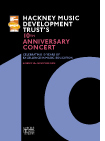
|
I'll Be Seeing You
I’ll Be Seeing You is HMDT’s tribute to the Home Front, commissioned to celebrate the 60th Anniversary of the end of World War 11. Designed as an intergenerational project, the piece is performed by three HMDT groups; The People of Hackney, The Hoxton Singers and students from Gayhurst School who have developed cross-curricular learning to support their work.
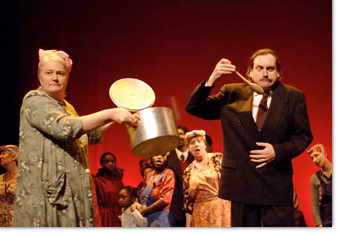
Librettist Alasdair Middleton researched many different aspects of the Home Front in order to present a piece which touched on as many issues which affected people as possible. I’ll Be Seeing You is the culmination of this process of research and includes scenes depicting the crucial aspects of home life such as rationing, evacuation, the introduction of women into the workplace, the Land Army, the Blitz, scrap collecting for the War Effort and the Armed Forces going off to fight.
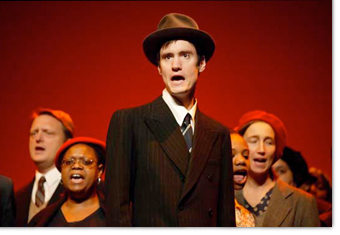
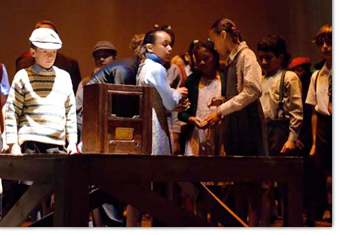
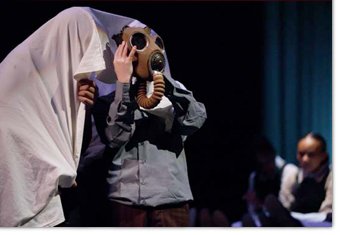
THE PAST IS A FOREIGN COUNTRY; THEY DO THINGS DIFFERENTLY THERE
Alasdair Middleton
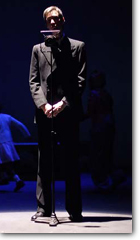
One reads about the behaviour of people during the Blitz and their behaviour strikes one as odd – behaving in a way that one cannot possibly imagine oneself or half of the people one knows behaving under similar circumstances. These people who were one’s grandparents, one’s parents, one’s self, experienced a life unlike our own.
Take this, for example: “A warden brought in a basket and said, ‘You’re to have these’. Well, we asked what it was and he took the paper off and it was all fingers and toes.
‘The hospital won’t take it because it’s not a casualty and the mortuary won’t take it because it’s not a corpse. So it’s yours to do what you like with.’Well, talk about red tape! The basket was there for two days. Eventually an ambulance driver buried it on the Common.” Imagine yourself as the speaker or as the warden with a basket of fingers and toes slung over your arm or as the ambulance driver digging a hole in the common. Would you have told it all quite the way the woman telling the story did? This story, for me, epitomises everything I have heard or read about the Blitz in London – horrific, hilarious and practical. What I’ll Be Seeing You is trying to do in a very modest way is celebrate those people, living and dead, for whom those horrific events were part of every day life.
Nothing is easier than to sentimentalise the past and the Blitz is no stranger to the sentimental. Stevie Smith, who was unruffled by the bombing wrote of what has become known as the Myth of the Blitz: “People say people were heroic in the raids. They were certainly good humoured and plucky and uncomplaining, but is it heroism to endure the unavoidable? Is not heroism rather to seek an end through danger? There was no end thought of or sought.”
We can never be sure how we would behave under similar circumstances, but if after celebrating them, we wish to emulate the people of London who endured the Blitz, let us emulate their good humour. Let us emulate their ‘pluck.’
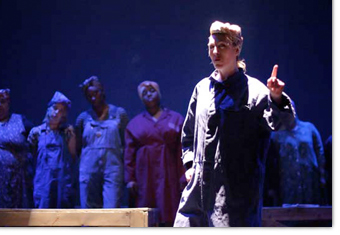
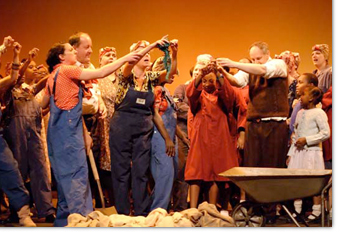
|
As part of the project, members of The Hoxton Singers talked to the children at Gayhurst School about their wartime memories.
Gerry Skinner
 I joined the Air Training Corps before the war and learnt Morse Code. When the Blitz started you could hear the bombs coming down. One day as they started up, I threw myself to the ground and when I got up I was soaking wet. I was outside a pub and in front of an overflowing man’s toilet. You can imagine the state of my uniform! I joined the Air Force in 1942 and one day I came home to find a letter calling me up to service. I went to Skegness to do all my square bashing and was then shipped to Blackpool where I did aircraft maintenance to check for oil leaks and repairs. After the course they didn’t tell us where we were going but put us on a ship towards Canada. In the straits of Gibraltar we got really bombed and lost a ship. It was terrible. On each staircase of my boat, there was an officer stopping people running away. One man was covered in crude oil but thank God it didn’t catch light... we were lucky, we were alright. We docked in Port Said, got a rickety wooden train to Alexandria and were then transferred to a pilot training camp. I joined the Air Training Corps before the war and learnt Morse Code. When the Blitz started you could hear the bombs coming down. One day as they started up, I threw myself to the ground and when I got up I was soaking wet. I was outside a pub and in front of an overflowing man’s toilet. You can imagine the state of my uniform! I joined the Air Force in 1942 and one day I came home to find a letter calling me up to service. I went to Skegness to do all my square bashing and was then shipped to Blackpool where I did aircraft maintenance to check for oil leaks and repairs. After the course they didn’t tell us where we were going but put us on a ship towards Canada. In the straits of Gibraltar we got really bombed and lost a ship. It was terrible. On each staircase of my boat, there was an officer stopping people running away. One man was covered in crude oil but thank God it didn’t catch light... we were lucky, we were alright. We docked in Port Said, got a rickety wooden train to Alexandria and were then transferred to a pilot training camp.
Irene Samain
 I was a factory worker in the clothing trade but most of the factories were burnt out by incendiary bombs, so when I was 16, I went to the Labour Exchange and was put on war work. We made bits for planes and were welding and engineering. It was very hard work, but very rewarding especially when the Officers came round to look at our work. We worked two weeks on the day shift and one on nights and on nights you had to go onto the roof when the bombs went, with a helmet and bucket of sand and watch out for the bombs coming down. Fortunately, most of the bombs went into the street but one night, one fell on the roof. Without thinking, I told my friend to kick it off and she was lucky it didn’t ignite, otherwise she would have lost her leg. We just went on instinct. There was one incident I was involved in when I was sheltering in a brewery. A bomb hit the ammonia tank and created a huge white vapour, so there was a cry of ‘Gas Attack’ and we were told to put on our gas masks. There was so much debris covering the entrance that we couldn’t get out. Eventually they had to chisel out the windows the next day to get us out. Lots of people were trampled on and killed, but we were lucky to get out. Although the war was a terrible time, we had some laughs. We went dancing with all the soldiers whenever we could. Out of disaster comes laughter. I was a factory worker in the clothing trade but most of the factories were burnt out by incendiary bombs, so when I was 16, I went to the Labour Exchange and was put on war work. We made bits for planes and were welding and engineering. It was very hard work, but very rewarding especially when the Officers came round to look at our work. We worked two weeks on the day shift and one on nights and on nights you had to go onto the roof when the bombs went, with a helmet and bucket of sand and watch out for the bombs coming down. Fortunately, most of the bombs went into the street but one night, one fell on the roof. Without thinking, I told my friend to kick it off and she was lucky it didn’t ignite, otherwise she would have lost her leg. We just went on instinct. There was one incident I was involved in when I was sheltering in a brewery. A bomb hit the ammonia tank and created a huge white vapour, so there was a cry of ‘Gas Attack’ and we were told to put on our gas masks. There was so much debris covering the entrance that we couldn’t get out. Eventually they had to chisel out the windows the next day to get us out. Lots of people were trampled on and killed, but we were lucky to get out. Although the war was a terrible time, we had some laughs. We went dancing with all the soldiers whenever we could. Out of disaster comes laughter.
Jessie Thomason
 I was made to be a fire fighter when I was 5 months pregnant and taught how to use a big hose wearing a big grey helmet. One day a bomb caught our house. I got my back all cut up and had splinters in my feet. My father-in-law was a mine-sweeper and suddenly lost his nerve. We heard a fellow calling for help, but he just couldn’t go out there and help. Our dog ran out and we never saw him again. The doors caved in and a fireman rushed in to help us. All I could think about was my makeup – my bra was hanging out of the window and I rushed to put it on. When we got to the hospital I realised it was covered in dir t and black smoke! I did enjoy dancing and while I was living with my parents-in-law they didn’t want me to go out as my husband was posted in Iceland. One night when they were out I slipped out to go dancing and as I was coming back I saw them coming down the street. I rushed into bed fully clothed and heard them come in saying ‘don’t disturb her, she’s fast asleep!’ I was made to be a fire fighter when I was 5 months pregnant and taught how to use a big hose wearing a big grey helmet. One day a bomb caught our house. I got my back all cut up and had splinters in my feet. My father-in-law was a mine-sweeper and suddenly lost his nerve. We heard a fellow calling for help, but he just couldn’t go out there and help. Our dog ran out and we never saw him again. The doors caved in and a fireman rushed in to help us. All I could think about was my makeup – my bra was hanging out of the window and I rushed to put it on. When we got to the hospital I realised it was covered in dir t and black smoke! I did enjoy dancing and while I was living with my parents-in-law they didn’t want me to go out as my husband was posted in Iceland. One night when they were out I slipped out to go dancing and as I was coming back I saw them coming down the street. I rushed into bed fully clothed and heard them come in saying ‘don’t disturb her, she’s fast asleep!’
Alasdair Middleton (Librettist)
 Alasdair’s works include plays; Casta Diva, Aeschylean Nasty, Shame on you, Charlotte and When We Were Good (at B.A.C.) librettos for children’s operas The Hackney Chronicles (Jonathan Dove) and The World Was All Before Them (Matthew King) a community opera On London Fields (Matthew King) for HMDT Music and Red Riding Hood (Jonathan Dove) for The Knack/Baylis Programme, He has compiled texts for performance pieces; Polite Conversation; Lachrymae and All In The Dark and a community cantata for the Spitalfields Festival, On Spital Fields (Jonathan Dove). Alasdair’s works include plays; Casta Diva, Aeschylean Nasty, Shame on you, Charlotte and When We Were Good (at B.A.C.) librettos for children’s operas The Hackney Chronicles (Jonathan Dove) and The World Was All Before Them (Matthew King) a community opera On London Fields (Matthew King) for HMDT Music and Red Riding Hood (Jonathan Dove) for The Knack/Baylis Programme, He has compiled texts for performance pieces; Polite Conversation; Lachrymae and All In The Dark and a community cantata for the Spitalfields Festival, On Spital Fields (Jonathan Dove).
Matthew King Matthew King (Composer)
 Matthew’s works include the operas The Snow Queen for Jane Manning’s Minstrels (QEH 1994); Jonah, for soloists, massed choirs and double orchestra with organ and electro-acoustic sound (Canterbury Festival 1996); a Passion setting Gethsemane for vocal quartet and baroque orchestra (Spitalfields Festival1998, Sydney Opera House1999); ...And Dream of London (St Paul’s Cathedral 2000); a cycle of new pieces written for the Fitzwilliam String Quartet; Handel’s Ghost, for 80 recorders (Wigmore Hall and Handel House Museum 2003). Commissions for HMDT include the children’s opera The World Was All Before Them, with Alasdair Middleton for Jubilee Primary School, the community opera On London Fields (Alasdair Middleton) Hackney Empire 2004 and Hear Our Voice in collaboration with Jonathan Dove for 2006. Future works include Brunel, (librettist Michael Irwin and electronic composer Nye Parry). Matthew’s works include the operas The Snow Queen for Jane Manning’s Minstrels (QEH 1994); Jonah, for soloists, massed choirs and double orchestra with organ and electro-acoustic sound (Canterbury Festival 1996); a Passion setting Gethsemane for vocal quartet and baroque orchestra (Spitalfields Festival1998, Sydney Opera House1999); ...And Dream of London (St Paul’s Cathedral 2000); a cycle of new pieces written for the Fitzwilliam String Quartet; Handel’s Ghost, for 80 recorders (Wigmore Hall and Handel House Museum 2003). Commissions for HMDT include the children’s opera The World Was All Before Them, with Alasdair Middleton for Jubilee Primary School, the community opera On London Fields (Alasdair Middleton) Hackney Empire 2004 and Hear Our Voice in collaboration with Jonathan Dove for 2006. Future works include Brunel, (librettist Michael Irwin and electronic composer Nye Parry).
|
 |
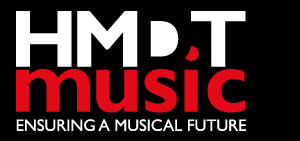














 Alasdair’s works include plays; Casta Diva, Aeschylean Nasty, Shame on you, Charlotte and When We Were Good (at B.A.C.) librettos for children’s operas The Hackney Chronicles (Jonathan Dove) and The World Was All Before Them (Matthew King) a community opera On London Fields (Matthew King) for HMDT Music and Red Riding Hood (Jonathan Dove) for The Knack/Baylis Programme, He has compiled texts for performance pieces; Polite Conversation; Lachrymae and All In The Dark and a community cantata for the Spitalfields Festival, On Spital Fields (Jonathan Dove).
Alasdair’s works include plays; Casta Diva, Aeschylean Nasty, Shame on you, Charlotte and When We Were Good (at B.A.C.) librettos for children’s operas The Hackney Chronicles (Jonathan Dove) and The World Was All Before Them (Matthew King) a community opera On London Fields (Matthew King) for HMDT Music and Red Riding Hood (Jonathan Dove) for The Knack/Baylis Programme, He has compiled texts for performance pieces; Polite Conversation; Lachrymae and All In The Dark and a community cantata for the Spitalfields Festival, On Spital Fields (Jonathan Dove). Matthew’s works include the operas The Snow Queen for Jane Manning’s Minstrels (QEH 1994); Jonah, for soloists, massed choirs and double orchestra with organ and electro-acoustic sound (Canterbury Festival 1996); a Passion setting Gethsemane for vocal quartet and baroque orchestra (Spitalfields Festival1998, Sydney Opera House1999); ...And Dream of London (St Paul’s Cathedral 2000); a cycle of new pieces written for the Fitzwilliam String Quartet; Handel’s Ghost, for 80 recorders (Wigmore Hall and Handel House Museum 2003). Commissions for HMDT include the children’s opera The World Was All Before Them, with Alasdair Middleton for Jubilee Primary School, the community opera On London Fields (Alasdair Middleton) Hackney Empire 2004 and Hear Our Voice in collaboration with Jonathan Dove for 2006. Future works include Brunel, (librettist Michael Irwin and electronic composer Nye Parry).
Matthew’s works include the operas The Snow Queen for Jane Manning’s Minstrels (QEH 1994); Jonah, for soloists, massed choirs and double orchestra with organ and electro-acoustic sound (Canterbury Festival 1996); a Passion setting Gethsemane for vocal quartet and baroque orchestra (Spitalfields Festival1998, Sydney Opera House1999); ...And Dream of London (St Paul’s Cathedral 2000); a cycle of new pieces written for the Fitzwilliam String Quartet; Handel’s Ghost, for 80 recorders (Wigmore Hall and Handel House Museum 2003). Commissions for HMDT include the children’s opera The World Was All Before Them, with Alasdair Middleton for Jubilee Primary School, the community opera On London Fields (Alasdair Middleton) Hackney Empire 2004 and Hear Our Voice in collaboration with Jonathan Dove for 2006. Future works include Brunel, (librettist Michael Irwin and electronic composer Nye Parry).